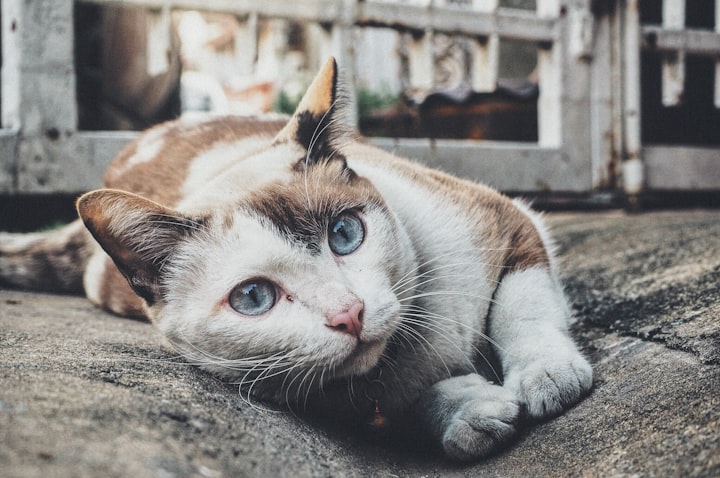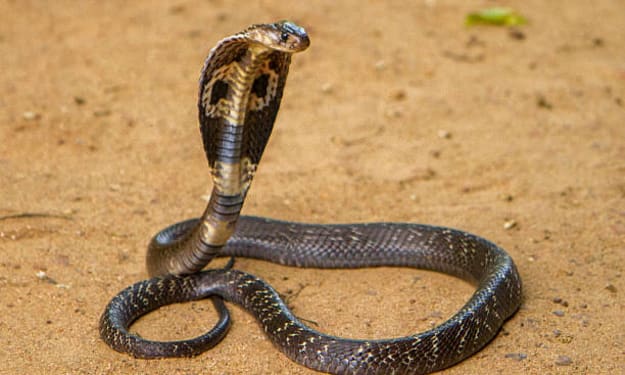Cats are psychologically stressed and prone to many diseases, such as colds, intestinal syndrome, infertility ...... and even, hair loss ...... Oh no, cats are covered in hair, and people are shedding.
Cats are stressed and prone to hair loss. Severe hair loss is one of the expressions of mental unhealthiness in cats.
This is different from the hair loss when grooming a cat, and the hair loss during the hair change period. The biggest difference is that a cat shedding due to psychological stress may be bald. That is, the shedding area may no longer grow new hair.
There are three most common areas where cats are prone to "baldness".
1. Head: including the top, forehead: when cats are stressed, there is a certain chance that they will increase the frequency of "face washing" and "face rubbing", which is one of the reasons for their hair loss. However, likely, this is not due to the cat's psychological stress, but to cat moss or some other cat skin disease. It is also possible that the cat is suffering from a long-term deficiency of vitamin B and other nutritional elements. It is especially important to note that cats suffering from ear mites can easily lose hair or even go bald near the ears.
2. Back or joints: Hair loss in the joints of cats is easy to occur, especially in older cats, but cats with severe hair loss on their backs need to be watched by their owners, which may be due to psychological stress in cats. Studies in feline zoology have found that feline back hair loss is often exacerbated when they are under severe psychological stress or suffer from mental illness.
3, the abdomen and other areas of severe hair loss due to "stress" eating: cats are prone to the "omnivorous" phenomenon when under stress. If you find that your cat starts to eat its hair with great frequency, it may mean that it has been under stress recently and is not in a sunny mood.
In the mood of the cat, the owner always needs to pay attention to
So the question is, how can a cat that sleeps after eating, plays after sleeping, and eats after playing, be "stressed out"?
The fundamental reason is that cats are very sensitive to their environment. The slightest change in the environment for a human can be a huge change for a cat.

In domestic cat raising, some factors can be easily overlooked by owners and may cause psychological stress to cats.
If the food is fresher and more nutritious than before (cats can tell these two things), then the cat's emotions may be more peaceful. If the food is worse and continues to get worse, the cat's psychological pressure will be higher.
2. Change the props commonly used by cats: such as cat litter, litter box, and cat scratching board. Cats like to live in a space full of their smell, and new props may make the cat nervous and uneasy. For example, the litter box is a typical example. Changing the litter box as well as changing the cat litter (especially changing the litter variety) needs to be executed slowly. Overly drastic changes may make the cat very anxious.
3. Pressure to choose a mate during estrus: If there are multiple un-neutered cats (both males and females), cats that have not successfully obtained "mate rights" or those in a lower mate rank will be under great pressure. A common expression of this stress is that some cats may become extremely anxious and then aggressive towards objects in the home - they may not dare to challenge the dominant male cat, so they have to look for pillows and other objects to vent their anger. This kind of stress during the rutting period can cause depression in cats, so owners should pay attention to it.
4. Sudden appearance of other creatures: It's not just the stranger who comes to your house a bug flying at the window (such as the stinky big sister) is a huge irritation for some cats. This is not alarming - domestic cats that live in confined spaces for years have a more degraded stress capacity. There have been cases where the owner bought back a hamster, surprisingly stressful for the domestic cat, because of nervousness for three consecutive days of vomiting.
5. Renovation and other sounds: cats have a very strong sense of hearing, some people think it is not a big sound, for the cat is incomparably clear. For example, the sound of some other households renovating, garbage trucks carrying garbage, and community greenery spraying will make some cats feel the pressure.
In a purely domestic environment, the stress capacity of some cats is significantly weakened
To keep cats from being seriously disturbed by these factors, owners should strengthen the psychological construction of cats during the weekdays - play.
For cats, playing or playing games is the best way to improve their psychological resilience and thinking and analyzing ability. According to incomplete statistics, cats whose owners often take out time to interact and play games with their cats have a lower chance of getting depressed than cats who do not play often by more than 30%.
In addition to owners interacting and playing with their cats more often, they should also pay attention to the diversity and richness of cat food nutrition. Proper vitamin supplementation is known to reduce the risk of depression in cats.
About the Creator
Phoenix
Victory won't come to me unless I go to it.







Comments
There are no comments for this story
Be the first to respond and start the conversation.